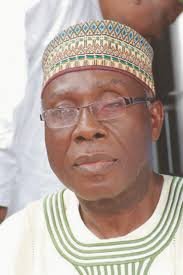…Indicates interest in adopting Nigerian Military’s strategy
The Armed Forces of Bangladesh is indicating its interest in learning from the counter-insurgency approaches of the Nigerian military in overwhelming Boko Haram insurgency, thereby further confirming Intervention’s story, titled “Nigerian Military Fascinates the World Over Boko Haram Counter-Insurgency”, (August 14th, 2016).
Although the US government and Amnesty International in particular have expressed strong reservations about the human rights components of the counter-insurgency operation, the military component of the war has, however, continued to be subject of interest to other militaries. This time, students of Bangladesh’s National Defence College currently on a geo-strategic trip to Nigeria told General Abayomi Olonisakin, Nigeria’s Chief of Defence Staff in Abuja that Bangladesh is keen to understand how the Nigerian military mounted its counter-insurgency as to basically route Boko Haram within so short a time. Rear Admiral Anwarul Islam who is leading the team to Nigeria further indicated how a strengthened inter-military relations between the two countries was worthwhile for Bangladesh, a point which the Nigerian side assured of its own willingness to explore. Air Vice Marshal Bashir Saidu of the Nigerian Defence Headquarters who received the team equally gave assurance of Nigeria’s readiness to pool efforts with other countries in the war on transnational terrorism.
For this newspaper, the significance of the Bangladesh military’s statement is how it further confirms its previous story. The story ran in parts as follows: History is repeating itself as far as strategic and tactical novelty of global reckoning in the conduct of counter-insurgency, (COIN) operations by the Nigerian military. As in the case of the Nigerian military’s record breaking face down of insurgents in Liberia and later Sierra Leone in the 1990s, so also is its conduct of the Boko Haram COIN so far.
Intervention has learnt from highly dependable sources that no less than three foreign militaries are understudying the Nigerian military’s exploits in the COIN operation. The three are at the United States, a traditional admirer of the Nigerian military as far as land operations is concerned, Britain and Belarus. This newspaper understood that the foreign militaries are paying particular attention to how the Nigerian operation commanders and troops cut Boko Haram’s supply line and isolated the insurgents in record time. Admirers of the tactics involved are said to have described such as unbelievable even by the standards of those that have been much longer involved in COIN warfare.
The US military is said to have admitted they have never had a success rate in terms of the speed at which the Nigerian army have basically broken the back of Boko Haram although as is typical of most insurgent groups, this is when the war might just be beginning. As an unengaged military expert told this newspaper, “The insurgent may never be able to mount and sustain any major operations again but terrorism is a many sided warfare. You don’t finish it at a go”
Observers have sighted the understudying teams at Maiduguri airport from where they are said to normally proceed to the combat zone. This, it is said, is no secret at all, according to such discerning observers.
This brings back memories of similar admiration for the Nigerian performance in ECOMOG few decades ago which subsequently resulted in request for closer intermingling with Nigerian troops. However, the request became the subject of uproar and recriminations within the Nigerian establishment. Victor Malu, the Chief of Army Staff at the time resisted it, telling Howard Jeter, the then American Ambassador in Nigeria who conceptualised the request to his government that what the Nigerian army needed were equipment, not lessons in peacekeeping. Lessons from that uproar might have favoured the current strategy of intermingling right at the war fronts. The assumption is that the fears of Victor Malu and all those opposed to the earlier intermingling must have been taken care of.
The Nigerian and the American militaries are no total strangers to each other in the war front. When the American rangers came under surprise attack in Operation Restore Hope in Somalia in 1993, it was the Nigerian military tacticians that created a corridor for them to escape. A Case of ‘Always as Friends’ can thus be argued.
This possibility of a world class professionalism would be most calming to Nigerian, coming after the terrible reality that Nigeria, until recently, did not have a military that could face down Boko Haram insurgency quickly. The Nigerian military had been left without weapons to fight and troops sent to war front were easily vulnerable to being savaged by Boko Haram insurgents. Nigerians saw their own troops running away from battle. It is perhaps only this stellar performance that would cure the psychological trauma of such a disaster, a continental giant whose neighbouring armies had to help out, especially if the military would be isolated from budgetary volatility in terms of a credible, deterrent force in a world of multiple threats. That is provided nobody along the line within or without the military would steal the money too.
All these go back to the age old debate about the military requirement for national greatness in Nigerian foreign policy. Actors such as Bolaji Akinyemi, a former Minister of Foreign Affairs, have shouted themselves hoarse in calling for a strong military, the meaning of strong stretching as far as nuclear capability. The counter to Akinyemi was that development ought to be a greater priority for a uniquely undeveloped country such as Nigeria. Others said Nigeria’s nieghbours were not likely to mount an attack on her and a huge military was nonsensical. The military itself participated in the debate when Ibrahim Babangida as Chief of Army Staff in 1984, called for a Military Industrial Complex model for Nigeria akin to what obtains in the United States of America.




























